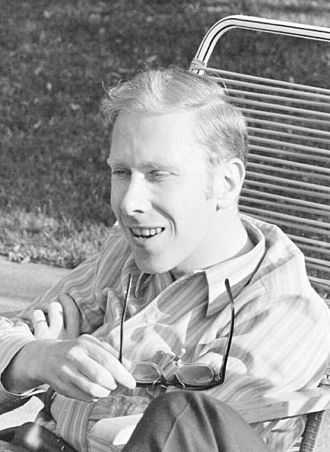| Niklaus Wirth Inventor Of Pascal Dies At Age 89 |
| Written by Mike James | |||
| Thursday, 04 January 2024 | |||
|
Only a few days after we celebrated the 40th anniversary of Turbo Pascal, we have the sad news that Niklaus Wirth, the creator of the language and so much more, died on January 1, 2024. We look at how he influenced programming in the 20th century. Niklaus Wirth is one of the pioneers of the practice of programming. Born in 1934 he earned a his bachelor's degree in electronic engineering from ETH Zurich, where he would later become Professor of Informatics and be responsible for introducing the new discipline of Computer Science into the curriculum at the behest of the Swiss Government in 1968.
Niklaus Emil Wirth in 1969 Pascal, which was developed starting in 1969 and made its debut in 1972, wasn't Wirth's first computer language. He earned his PhD at the University of California, Berkeley where his thesis was titled "A Generalization of Algol" and led to the Euler. He resigned from the Algol Working Group when his proposal for an improvement to Algol 60 based on Euler was rejected. With Tony Hoare he continued to work on this and it became Algol-W which then became the basis for Pascal. Pascal was a language that was designed specifically for teaching good programming practice.These were more innocent times and object oriented programming had not taken hold. What mattered was getting away from the unstructured mess of assembler and Fortran to a modern implementation of structured programming. Pascal, as first introduced, was a vehicle to write structured code - it had control structures that eliminated the need to use the goto. Today it looks fairly standard, but at the time many programmers hated its over-constrained fussiness. Yes, there was a big anti-structure contingent. We have come a long way since then. So too was it with his next language, Modula. The buzzword of the time was structured-modular programming and Modula pushed further into the encapsulation of code into modules which interacted in controlled ways. This approach developed evantually into encapsulation within the object-oriented paradigm. Pascal was a huge sucess in the sense that most university Computer Science departments adopted it as their main teachning language. This was a golden age because they had a language which was built to make what they were teaching clear. Compare this to todays mess of different languages each with flawed academic credentials. However Pascal only took off in the wider world when Borland introduced the world to Turbo Pascal, a much more capable and practical programming enviroment that found in the original. During the 1970s Wirth participated in the IFIP Working Group on Programming Methodology, proposing the idea of stepwise refinement of code as a complement to the various visions of “structured programming” the group, including Edsger Dijksta and Tony Hoare put forward. This idea was elucidated in Systematic Programming (1973) which along with Algorithms + Data Structures = Programs (1975) are considered to among the most influential contributions to the literature on programming methods and concepts. These were the heros of the era of programming when we were trying to formalize what good programming was and before it became so divided into the waring camps of functional, strongly typed objects and dynamic objects. In those days it was easy to see that what Wirth was saying was simply correct. Wirth received ACM's A.M. Turing Award in 1984 with the citation stating: For developing a sequence of innovative computer languages, EULER, ALGOL-W, MODULA and PASCAL. PASCAL has become pedagogically significant and has provided a foundation for future computer language, systems, and architectural research. In 1987 he was awarded the IEEE Computer Society's Computer Pioneer Award for Pascal and in 2004, was made a Fellow of the Computer History Museum: "for seminal work in programming languages and algorithms, including Euler, Algol-W, Pascal, Modula, and Oberon." In 1994 Niklaus Wirth was inducted as a Fellow of the ACM was one of the recipients of this honour to be interviewed by Elena Trichina in 2018 which revealed much more about his work and contributions over his long career.
More InformationACM Turing Award Profile of Niklaus Wirth Related ArticlesNiklaus Wirth, Inventor Of Pascal For Teaching Computer Science The Rise Of People Power - Computer Languages in the 1970's Towards Objects and Functions - Computer Languages In The 1980s To be informed about new articles on I Programmer, sign up for our weekly newsletter, subscribe to the RSS feed and follow us on Twitter, Facebook or Linkedin.
Comments
or email your comment to: comments@i-programmer.info |
|||
| Last Updated ( Thursday, 04 January 2024 ) |


